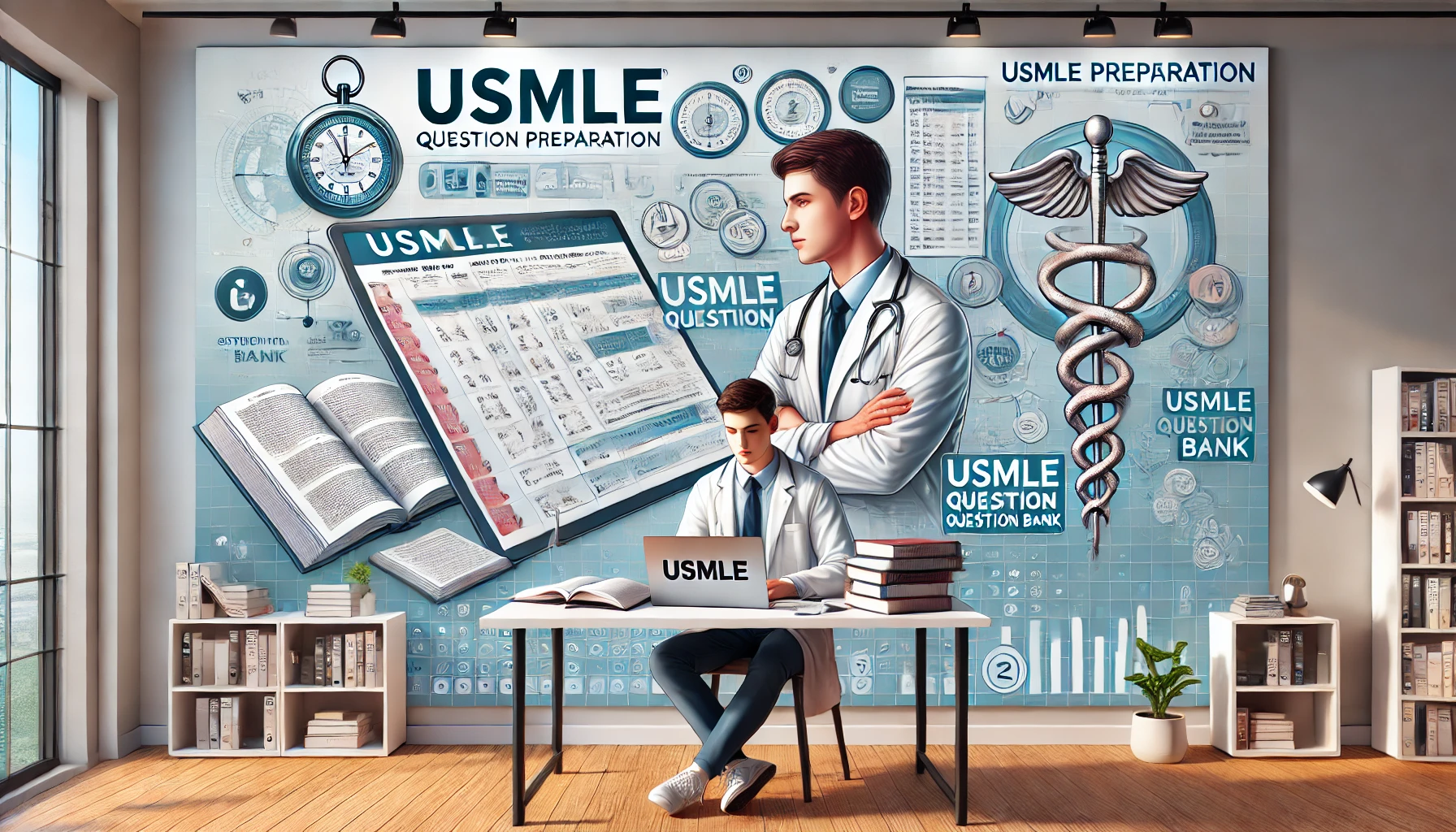USMLE vs PLAB: Which Medical Licensing Exam is Better for You?
USMLE vs PLAB: Choosing between the USMLE (United States Medical Licensing Examination) and PLAB (Professional and Linguistic Assessments Board) is a significant decision for international medical graduates (IMGs) aspiring to practice medicine in the United States or the United Kingdom. Both exams serve as gateways to prestigious medical careers, but they differ in terms of structure, cost, difficulty, and career outcomes. In this comprehensive guide, we’ll compare the USMLE vs PLAB to help you make an informed choice based on your career goals and personal circumstances.
Understanding the Basics: What Are USMLE and PLAB?
Before diving into the detailed comparison, let’s first understand what USMLE and PLAB are and their roles in medical licensing.
What is the USMLE?
The USMLE is a three-step examination required for medical licensure in the United States. It evaluates a physician’s ability to apply knowledge, concepts, and principles that are vital for effective patient care. The three steps are:
- Step 1: Assesses your understanding of basic medical sciences.
- Step 2 CK (Clinical Knowledge): Evaluates your clinical knowledge and application in a clinical setting.
- Step 3: Tests your ability to apply medical knowledge in patient management, often taken after the first year of residency.
What is the PLAB?
PLAB is the exam for international medical graduates who wish to practice medicine in the United Kingdom. It is divided into two parts:
- PLAB 1: A written exam consisting of 180 multiple-choice questions that assess your ability to apply knowledge in clinical scenarios.
- PLAB 2: An Objective Structured Clinical Examination (OSCE) that tests your clinical skills in simulated patient interactions.
Which is Better: USMLE or PLAB?
When deciding between USMLE and PLAB, it’s crucial to consider various factors, including career goals, exam difficulty, costs, and the recognition of each exam globally.
USMLE vs PLAB Difficulty: Which Exam is Tougher?
The difficulty of an exam often determines how much preparation time is needed and the stress level associated with it.
- USMLE: The USMLE is known for its rigorous and comprehensive content. Step 1 is particularly challenging as it covers a broad range of basic sciences, and a high score is often required for competitive residency programs. The subsequent steps, while also challenging, build upon the knowledge tested in Step 1 but are more clinically focused.
- PLAB: Comparatively, the PLAB is considered less challenging, especially PLAB 1, which focuses on clinical scenarios rather than the basic sciences. PLAB 2, however, requires strong clinical skills and the ability to perform well in a practical exam setting.
In general, if you find basic science subjects more challenging, the USMLE might pose more difficulty. However, if practical clinical exams are daunting for you, PLAB 2 could be a significant hurdle.
USMLE vs PLAB Cost: What’s the Financial Investment?
The cost of preparing for and taking these exams is another critical consideration.
- USMLE: The total cost of taking the USMLE can exceed $3,000, considering the fees for all three steps, study materials, and potentially retaking any parts of the exam. Additionally, the USMLE preparation process can be costly due to the extensive resources required, including books, online courses, and practice exams.
- PLAB: The PLAB is more affordable, with the total cost for both parts of the exam being significantly lower than the USMLE. PLAB 1 costs around £255, and PLAB 2 costs £934. Preparation materials for the PLAB are generally less expensive, making it a more budget-friendly option for many international medical graduates.
If cost is a significant factor in your decision, PLAB is generally the less expensive option.
Career Outcomes: PLAB vs USMLE Salary and Recognition
Your career goals, including potential salary and recognition of your qualifications, should play a major role in your decision.
PLAB vs USMLE Salary: What Can You Expect?
- USMLE: Physicians who complete the USMLE and practice in the United States generally earn higher salaries than those in the UK. The U.S. healthcare system offers numerous opportunities for specialization, which often comes with increased earning potential.
- PLAB: Doctors practicing in the UK generally have lower salaries compared to their U.S. counterparts. However, the UK offers a better work-life balance, which may appeal to those who prioritize personal time alongside their career.
PLAB vs USMLE Recognition: Global Opportunities
- USMLE: The USMLE is widely recognized, not just in the United States but also in many other countries, allowing for greater mobility in your medical career. A high USMLE score can significantly enhance your chances of securing competitive residency positions and fellowships.
- PLAB: While PLAB is primarily for practicing in the UK, it is recognized in several other Commonwealth countries. However, it does not offer the same level of global recognition as the USMLE, limiting your opportunities outside the UK.
If global mobility and higher earning potential are important to you, the USMLE may be the better choice. However, if you are focused on practicing in the UK or a Commonwealth country with a good work-life balance, PLAB could be the better option.
Exam Structure and Content: USMLE vs PLAB Syllabus
Understanding the exam structure and content is crucial for effective preparation.
USMLE vs PLAB Duration: How Long Are the Exams?
- USMLE: The USMLE exams are lengthy, with Step 1 lasting 8 hours, Step 2 CK lasting 9 hours, and Step 3 taking two days to complete. This duration reflects the comprehensive nature of the exam, covering a vast array of topics in detail.
- PLAB: PLAB exams are shorter, with PLAB 1 lasting 3 hours and PLAB 2 taking approximately 3.5 hours. The shorter duration aligns with the more focused content, primarily on clinical scenarios relevant to UK medical practice.
USMLE vs PLAB Syllabus: What’s Covered?
- USMLE: The USMLE syllabus is extensive, covering basic medical sciences, clinical knowledge, and patient management. It is designed to test a wide range of competencies required for practicing in the U.S.
- PLAB: The PLAB syllabus is more focused on clinical scenarios and the practical application of medical knowledge in the UK healthcare system. PLAB 1 covers key areas of medicine, surgery, and other specialties, while PLAB 2 tests practical clinical skills.
If you prefer a broader exam that tests a wide range of knowledge, the USMLE might be more suitable. However, if you prefer a focused exam that tests practical skills in clinical settings, the PLAB could be a better fit.
USMLE vs PLAB Pass Rate: What Are Your Chances?
Understanding the pass rates for each exam can give you an idea of the likelihood of success.
- USMLE: The pass rates for the USMLE vary by step, with Step 1 having a lower pass rate due to its challenging content. However, Step 2 CK and Step 3 generally have higher pass rates.
- PLAB: The PLAB generally has a high pass rate, particularly for PLAB 1. However, PLAB 2 requires strong clinical skills and preparation, and the pass rate is slightly lower for this part.
If exam difficulty and pass rates are a concern, PLAB might be less daunting compared to the USMLE.
Final Thoughts: Making Your Decision Between USMLE and PLAB
Choosing between the USMLE and PLAB depends on various factors, including your career aspirations, financial situation, and preferred work environment. The USMLE offers higher earning potential and global recognition but comes with a more challenging exam process and higher costs. On the other hand, the PLAB is more affordable and offers an easier entry into the UK healthcare system, though it may limit your global career opportunities.
When deciding between USMLE and PLAB, consider where you want to practice, the kind of work-life balance you desire, and how much time and money you’re willing to invest in the process. Both exams can open doors to fulfilling medical careers, but the right choice depends on your unique circumstances.
For more resources on medical licensing exams and personalized study plans, visit Regent Studies, where you can find tools and guidance tailored to your specific needs.




